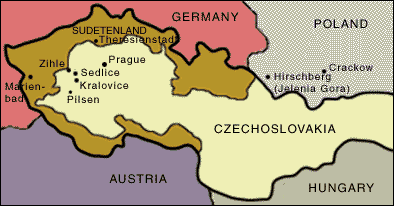Eli Lake, longtime security analyst, and the LEFT OF CENTER, Daily Beast
All of this surprises NO ONE who has watched Obama as president. In fact he can reach an agreement in which a dangerous and religiously racist power whose very leader has threatened to kill one of our major allies, FOR RELIGIOUS REASONS, but he cannot reach an agreement with Americans who happen to be REPUBLICAN?
He can purposefully deceive the American people about their HEALTH CARE in order to win an election, but he must achieve this deal with the MULLAHS while telling Americans again THIS IS GOOD?
All we can do is hope Israel is determined to remain free to exercise their own judgment and action against existential enemies, and in doing so push forward REAL FREEDOMS in this world.
IMAGINE THIS WORLD WITHOUT THE MULLAHS.
Iran
Hezballah (and their actions in THIS HEMISPHERE)
HAMAS
Oil and it price worldwide
Sanctuary for terrorists who mean HARM to the american people
The Obama administration began softening sanctions on Iran after the election of Iran’s new president in June, months before the current round of nuclear talks in Geneva or the historic phone call between the two leaders in September.Rouzbeh Jadidoleslam/APWhile those negotiations now appear onthe verge of a breakthroughthe key condition for Iran—relief from crippling sanctions—began quietly and modestly five months ago.A review of Treasury Department notices reveals that the U.S. government has all but stopped the financial blacklisting of entities and people that help Iran evade international sanctions since the election of its president, Hassan Rouhani, in June.On Wednesday Obama said inan interview with NBC Newsthe negotiations in Geneva “are not about easing sanctions.” “The negotiations taking place are about how Iran begins to meet its international obligations and provide assurances not just to us but to the entire world,” the president said.
If you like your health plan, you can keep your health plan
One way Obama has pressured Iran is through isolating the country’s banks from the global financial sector, the networks that make modern international commerce possible. This in turn has led Iran to seek out front companies and cutouts to conduct routine international business, such as selling its crude oil.In this cat and mouse game, the Treasury Department in recent years has routinely designated new entities as violators of sanctions, forcing Iran to adjust in turn. In the six weeks prior to the Iranian elections in June, the Treasury Department issued seven notices of designations of sanctions violators that included more than 100 new people, companies, aircraft, and sea vessels.Since June 14, however, when Rouhani was elected, the Treasury Department has only issued two designation notices that have identifiedsix people and four companiesas violating the Iran sanctions.When an entity is designated as a sanctions violator it can be catastrophic. Banks and other investors almost never take the risk of doing business with the people and companies on a Treasury blacklist because of the potential reputational harm and the prospect they could lose access to U.S. financial markets.“Sounds like Obama decided to enter the Persian nuclear bazaar to haggle with the masters of negotiation.”A Treasury spokesman contacted by The Daily Beast said the effectiveness of sanctions should be measured by their results and not the number of entities designated. (A White House spokesman declined to comment, directing inquiries to the Treasury.) The Treasury spokesman also said that the significant financial pressure on Iran in recent years changed the calculus of the country’s leaders and led to the election of Rouhani, who is a former nuclear negotiator and is considered more moderate than his predecessor.“In the months since the Iranian election we have continued to pursue our unwavering goal of preventing Iran from obtaining a nuclear weapon,” the spokesman said. “We have not let up on vigorous sanctions enforcement one iota. This includes new designations of sanctions evaders as well as other steps to address potential sanctions evasion.”But the enforcement of sanctions, experts said, is very different than the process of designating new violators. To start, sanctions enforcement means the levying of fines or other legal measures against those people and entities already designated by the Treasury Department as a violator.
MEANWHILE…
Iran will not agree to halt its nuclear enrichment rights under any deal with the West, according to the country’s lead negotiator, Foreign Minister Mohammad Javad Zarif.“The Islamic Republic of Iran makes no deal over its right,” Zarif toldreportersafter daylong negotiations with the West in Geneva over Iran’s disputed nuclear program, according to Iran’s state-run Fars News Agency.Zarif’s insistence on Iran’s right to enrich uranium, the key component in a nuclear bomb, comes as Western sources suggest that a nuclear deal could be reached as early as Friday.The debate over Iran’s enrichment rights has been a key sticking point for negotiators on both sides.U.S. lawmakers and the Israelis argue that Iran will continue its nuclear weapons work if it retains the right to enrich uranium. The Iranians say they will not give ground on the issue.Zarif’s remarks indicate that Iran could be getting most of what it wants in the deal. He and other officials have praised the talks and the progress each side is making




2 comments:
You think Israel will actually take out the Mullahs?
I wish that would happen, but I think it is highly unlikely.
Given obama's attitudes, IMHO, he has told Netanyahu if they attack ran, all supplies are cut off.
China would also suffer if this were to happen (oil prices).
But RUSSIA would benefit.
Look for signs of some rapproachment IF Russia can wean Egypt back,m and sign up Israel (PAK T-50's for sale?) look out below.
Post a Comment